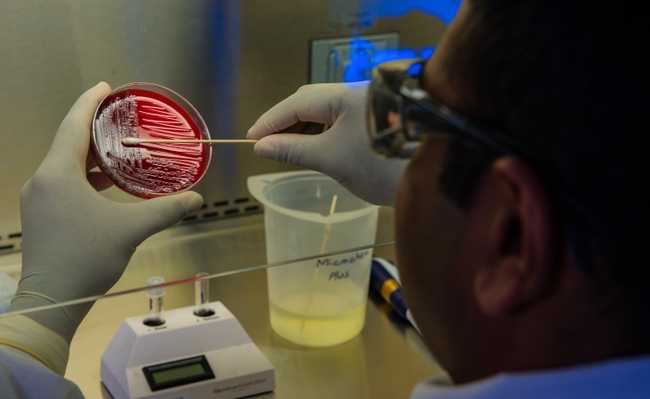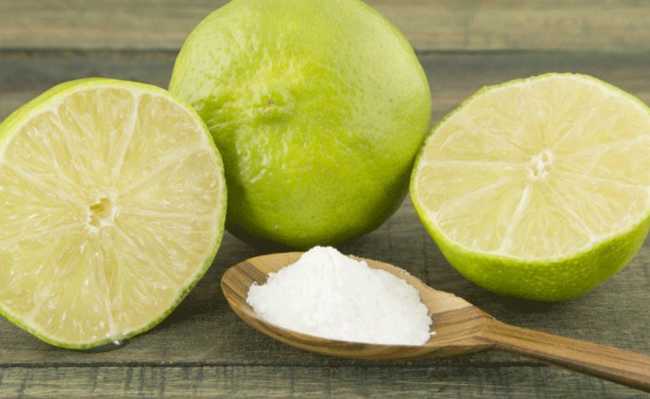Blueberry: what is it and benefits
Blueberry is a fruit that improves cholesterol levels, blood sugar, prevents inflammation and protects eye health.

Edited and resized image by Vince Fleming is available on Unsplash
O blueberry , called blueberry in Portuguese and scientifically as Vaccinium myrtillus L., is one of the richest fruits of anthocyanins, the antioxidants responsible for its blue color. O blueberry can provide benefits such as improving cholesterol levels, blood sugar, preventing inflammation and protecting eye health.
- Red fruit anthocyanins bring many benefits
Anthocyanins are believed to be the main bioactives responsible for the benefits of blueberry to health. Although it is best known for improving eyesight, there are reports that blueberry helps lower blood sugar, has anti-inflammatory effects, helps control bad cholesterol, and reduces oxidative stress. Therefore, the blueberry is a great choice for alternative treatments and prevention of conditions associated with inflammation, problems with cholesterol, excess blood sugar, increased oxidative stress, cardiovascular disease (CVD), cancer, diabetes, dementia, and other age-related illnesses. There are also reports that the blueberry has antimicrobial activity. This is all according to a study published by the platform National Center for Biotechnology Information.
blueberry
O blueberry grows on small shrubs, originating in northern Europe, but can be found in parts of North America and Asia. It tends to grow in moist coniferous forests and its development is favored by moderately moist soils. O blueberry it is a small fruit (5-9 mm in diameter), bluish black in color, with many seeds and can be safely consumed when used properly. The daily consumption indicated varies from 20 to 60 grams per day of dried fruits and from 160 to 480 milligrams of powdered extract.
properties
Effects against cancer
Studies done in vitro demonstrated that the anthocyanins of the blueberry prevent cancer through antioxidant activity, which can help protect DNA from oxidative damage. However, studies have noted that the doses used for studies in vitro are much higher than the values that can be reached inside the cells through normal ingestion.
Antioxidant Effects
The anthocyanins present in the blueberry give the fruit powerful antioxidant properties. However, although anthocyanins act as potent antioxidants in studies done in vitro, it cannot be assumed that all commercial products from blueberry contain significant amounts of anthocyanins or that the absorbed anthocyanins act directly as antioxidants in vivo.
- Antioxidants: what are they and in what foods to find them
cardioprotective effects
Studies carried out with blueberry showed that fruit consumption has the potential to improve bad cholesterol levels. In addition, potentially antithrombotic and antihypertensive effects, which are characterized as cardioprotective effects, were observed.
- Does altered cholesterol have symptoms? Know what it is and how to prevent it
Anti-inflammatory effects
Inflammation is a protective mechanism, but chronic inflammation increases oxidative stress and is associated with many age-related illnesses, including cardiovascular disease and cancer. Many studies suggest that anthocyanins, the predominant phenolic compounds found in blueberry , have anti-inflammatory effects. One study showed decreased inflammatory levels in 31 individuals who took 330 mL/day of juice from blueberry for 4 weeks.
- 16 foods that are natural anti-inflammatory
hypoglycemic effects
Due to its hypoglycemic ability (ability to lower blood sugar level), the blueberry it is used to reduce the symptoms of diabetes. In a survey of 685 Italians, the blueberry ranked fourth on the list of herbal remedies recommended for improving glycemic control, which means that the fruit contributes to the prevention and control of type 2 diabetes, which is a disease associated with increased oxidative stress, inflammation, dyslipidemia (disorder in the lipid and/or lipoprotein levels in the blood), cardiovascular disease, cancer and vision loss from cataracts and retinopathy (retinal disease).
eye effects
O blueberry it is well known for treating eye disorders. Studies show that the fruit provides beneficial effects for eye conditions such as cataracts, retinopathy, macular degeneration (loss of vision in the center of the visual field due to damage to the retina) and night vision.
Age-related vision loss, mainly due to senile cataracts and macular degeneration, affects the quality of life of virtually all elderly people. Diabetic retinopathy is highly prevalent in those who have had diabetes for 10 years or more and is a leading cause of blindness in developed countries. There is sufficient evidence from animal studies and small human trials to ensure that the blueberry can help resolve clinical problems related to old age and diabetes-related vision loss.
- Blue light: what is it, benefits, damages and how to deal
neuroprotective effects
The phenomenon of age-related degenerative diseases that lead to cognitive decline is very common. Stroke, mainly triggered by hypertension or thrombosis, is one of the main causes of death and disability. The vasodilatory and anti-inflammatory effects of blueberry may have a significant influence on the preservation of cognition and neuromotor function, as consumption of the fruit decreases the risk of hemorrhagic and thrombotic stroke.










